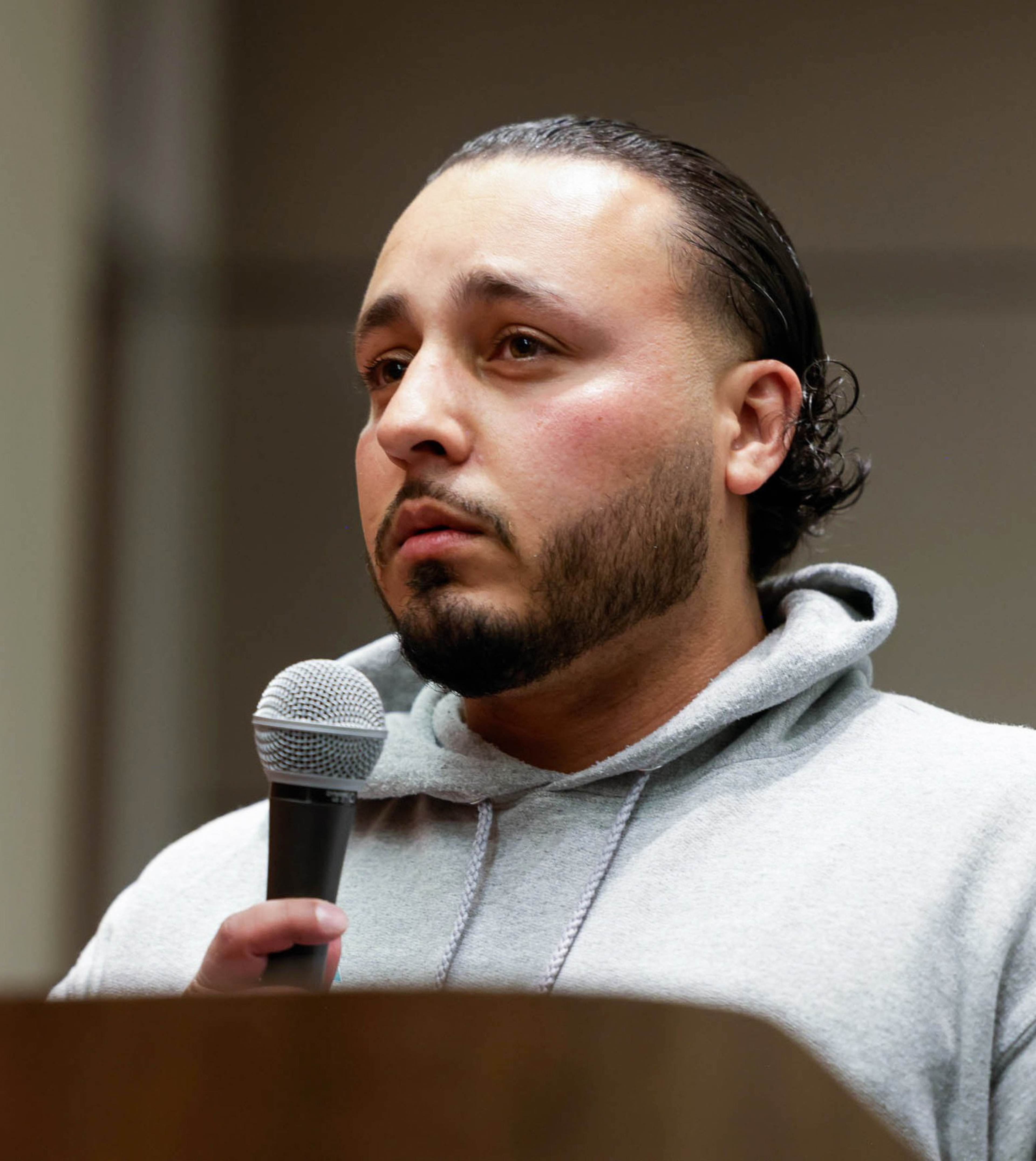Democrats in San Francisco are facing growing pressure to show their efforts to root out sexual predators are more than lip services after another prominent figure in progressive politics was accused of sexual assault.
In a story published last week, the San Francisco Chronicle detailed allegations against Kevin Ortiz (opens in new tab), a former staffer in Speaker Emerita Nancy Pelosi’s office who, until Monday, was serving as co-president of the city’s Latinx Democratic Club.
Zahra Hajee, a former staffer to Supervisor Rafael Mandelman and state Sen. Scott Wiener, and another unnamed woman told the Chronicle that Ortiz sexually assaulted them in separate incidents dating back to 2021 and 2019, respectively. Through his attorney, Ortiz told the Chronicle that all of his interactions with Hajee and the second woman were consensual.
Hajee reported two alleged incidents to police in April of this year after The Standard’s reporting on multiple women who had allegations against Jon Jacobo—a once-rising political star in the Mission District—that ranged from domestic violence and threats to attempted rape and rape.
Hajee told The Standard this week that she “felt such an overwhelming sense of support” since coming forward. She added, “It has assuaged my deepest fears.”

However, like the women in the Jacobo story, Hajee said that the local political community did little to hold Ortiz accountable despite many people being aware of allegations against him. The question is whether that could soon change.
The Democratic County Central Committee (DCCC) convened a special committee in late April to receive allegations of sexual misconduct in local political spaces while also creating a new code of conduct for its chartered political clubs.
Multiple sources in the DCCC told The Standard that the committee is nearing the completion of its work and a public announcement could come as soon as next month. But how that work would result in repercussions for clubs that have alleged sexual predators among their leadership is unknown.
A source with knowledge of the special committee’s work said that Ortiz’s name was never mentioned in any of its closed-door meetings. The source also said that the DCCC did not exert any pressure on the Latinx Democratic Club for him to take a leave of absence after the Chronicle’s story. Victims who spoke to The Standard said that sidelining problematic political figures is an important first step that the DCCC should be demanding.
“Removing them from the political arena would probably do more than anything because all they’re focused on is accumulating power,” Hajee said. “I understand these outcomes take time, but there’s a different way to go about this that will achieve results along the path to seeking justice for survivors.”
Ortiz’s attorney told the Chronicle that the two women were “working in concert to defame” him, but the second woman who accused Ortiz of sexually assaulting her told The Standard in a phone interview that she and Hajee are “politically opposed.” She said she did not file charges with police because of the grueling process victims often undergo.
“The reality is you don’t get assaulted by your opponents, you get assaulted by your allies,” she said. “People who you trust. People who you hang out with socially. This definitely happens on the moderate side, too.”
It’s unclear how many new allegations of sexual misconduct have been received by the DCCC since it formed the committee, but all chartered political clubs will be required to accept a new code of conduct to remain in the local Democratic Party. The changes will include a new intake process for complaints that attempts to keep the reports apolitical and anonymous for as long as possible. Another step could involve bringing in an ombudsman from outside the city to monitor complaints and how they are handled.
“Part of it is changing the culture on what is acceptable and empowering all participants in a safe environment,” a DCCC source said.

Rumors of the allegations against Ortiz have been circulating since late 2021, when Hajee informed Pelosi’s office of her allegations while Pelosi was still speaker of the House. The results of that probe are unknown—Pelosi’s office has declined to comment on Ortiz beyond noting his dates of employment—but he eventually sought new work in 2022.
Ortiz and his attorney did not respond to requests for comment for this story.
Hajee, who no longer lives in San Francisco, said she has been relieved by the response she has received since coming forward but is still reserving judgment on the outcome of the DCCC’s special committee.
Within two days of the Chronicle story, the Latinx Democratic Club’s co-president Deldelp Medina, who is running for a seat on the San Francisco school board, announced she was stepping down from her post.
“As a survivor, I recognize that no one is the worst thing that they’ve ever done,” she wrote (opens in new tab). “Yet, to create healing accountability and responsibility has to be at the center of the work. I hope that the club and its leadership do that hard and needed work.”
On Monday, the club announced that Ortiz was taking a leave of absence and that the organization was launching an independent investigation.
“We are extremely concerned about these allegations which the LDC is investigating with the utmost urgency,” the club said in a statement (opens in new tab).
In recent years, Ortiz has become a more notable figure in progressive politics, escorting Rep. Katie Porter around the Mission during a campaign stop last summer. Late last year, he was frequently seen at events with Jacobo in support of Mission Street vendors. Following the Jacobo report, Ortiz’s name began to circulate on social media as someone with allegations against him. His attorney soon began sending out cease-and-desist letters to multiple women.
After he was referenced in the DCCC’s announcement of the special committee, Ortiz was removed from the board of the Chinatown Community Development Center, an affordable housing and advocacy nonprofit.
Hajee suggested that the Latinx Democratic Club’s investigation is problematic because Ortiz’s longtime political allies will be overseeing this work, and for now survivors’ best route to accountability may be sharing their stories in the press.
“I just wanted to make sure that other women, particularly in my community, were protected and knew what was going on,” Hajee said. “And the second reason why I thought it was important for me to come forward is that I just didn’t want anyone else to experience what I experienced—or worse.”
